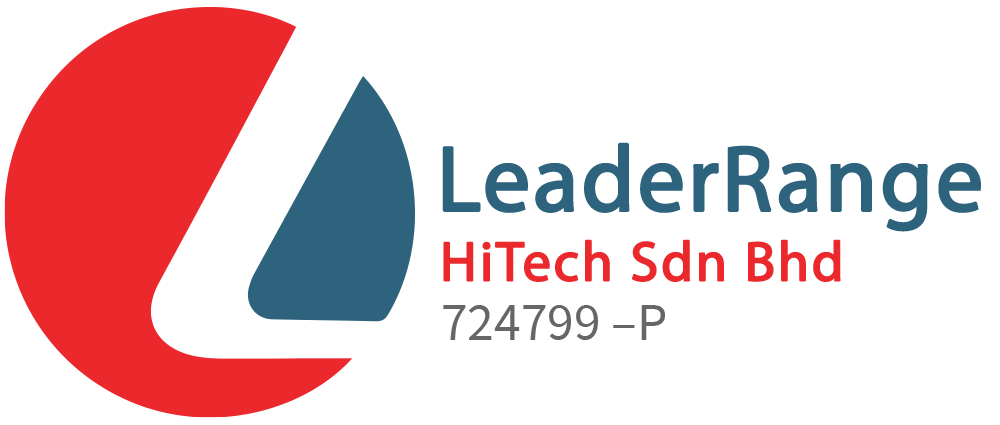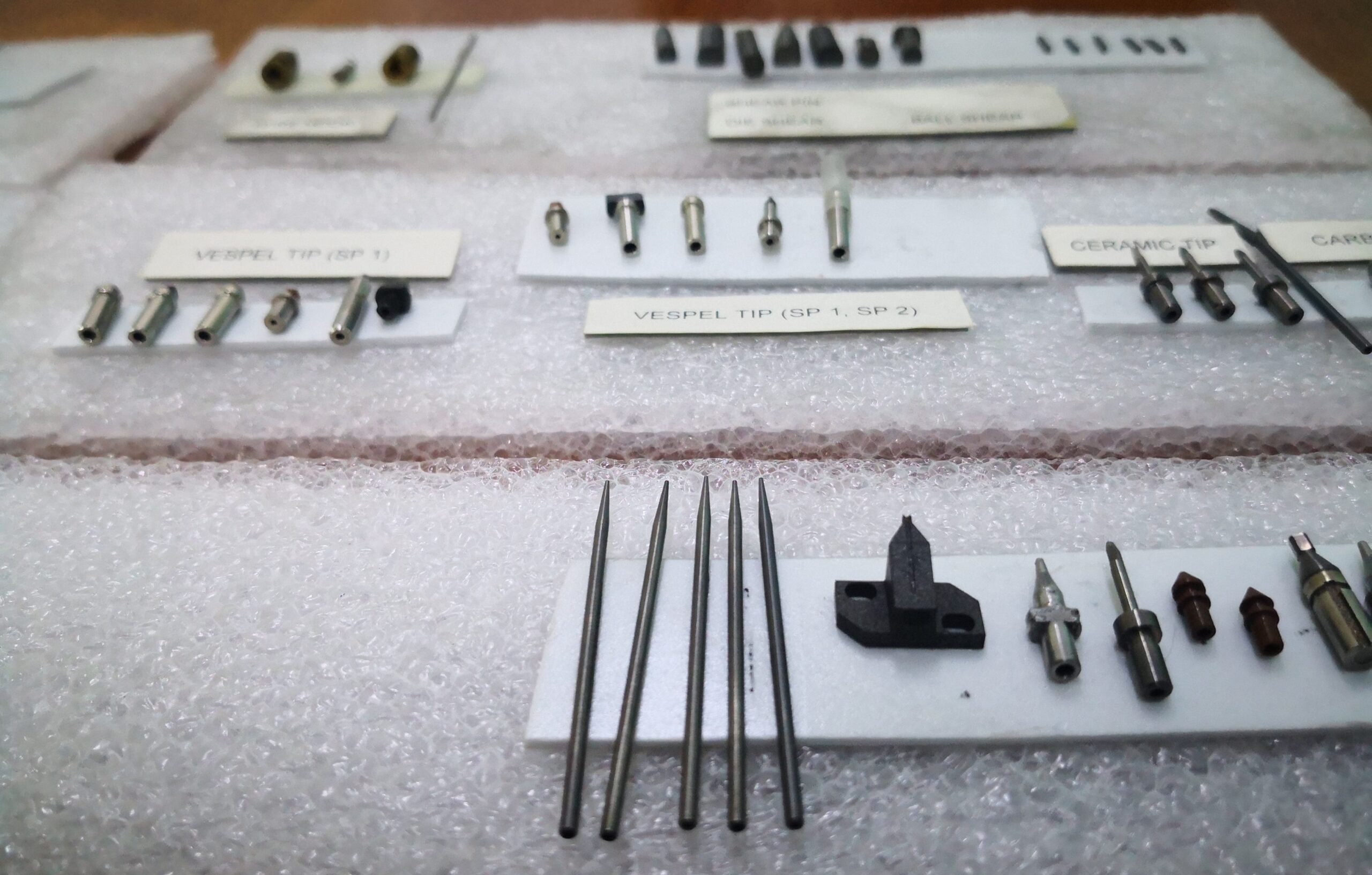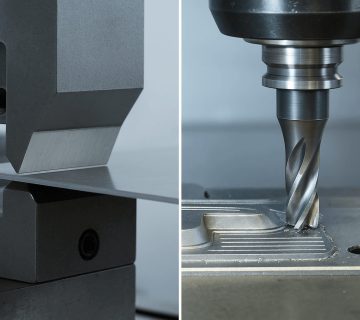Precision tooling is the cornerstone of the semiconductor industry, where the need for unmatched accuracy, efficiency, and reliability drives every manufacturing process. Advanced carbide tools and solutions play a critical role in meeting these stringent demands, ensuring components are produced with exact tolerances and superior quality.
This guide delves into the key aspects of precision tooling, its importance in semiconductor manufacturing, and how innovative tooling solutions are shaping the future of this dynamic industry.
Definition and Importance of Precision Tooling
Precision tooling involves specialized tools and equipment designed to produce components with extremely tight tolerances and exact dimensions. In semiconductor manufacturing, these tools are vital because even the smallest error can lead to defective products or malfunctioning devices. Precision tooling ensures every process, from machining to assembly, adheres to the industry’s exacting standards.
Examples of Precision Tools in Semiconductor Manufacturing:
- Carbide Tips – Used in pick-up tools for die bonding and precision handling of microchips.
- Ejector Pins & Needles – Facilitate the removal of delicate components from molds with high accuracy.
- Epoxy Stamping Tools – Ensure precise epoxy dispensing in die attach processes.
- Wafer Probes & Probe Needles – Used for electrical testing of semiconductor wafers.
- Dicing Blades – Enable precise wafer cutting, minimizing material loss and defects.
Key benefits of precision tooling:
- Accurate Production: Enables the creation of semiconductor components with micro- and nano-level tolerances.
- Efficient Manufacturing: Reduces errors and waste, streamlining production and lowering costs.
- Support for Advanced Technology: Facilitates intricate designs required for smaller, more complex devices.
- Consistent Quality: Ensures uniformity and reliability across production cycles.
Simply put, precision tooling is the foundation of semiconductor manufacturing, driving efficiency, quality, and innovation.
The Role of Precision Tools in Semiconductor Manufacturing
Precision is central to semiconductor production, where components are microscopic and highly intricate. At every stage of the process, precision ensures high performance and reliability in the final product:
- Wafer Fabrication: Precision tools slice, polish, and pattern silicon wafers with sub-micron accuracy to meet strict thickness and smoothness requirements.
- Chip Assembly: Tools align and bond tiny components, such as during wire bonding and die attachment, ensuring proper electrical connections and stability.
- Surface Finishing: Grinding and polishing tools create flawless finishes, critical for conductivity and defect prevention.
- Quality Testing: Die and ball shearing pins test bond strength with pinpoint accuracy, ensuring each component meets performance standards.
Precision tooling ensures consistency and reliability, enabling cost-effective production and meeting the high expectations of today’s technology-driven world.
Key Components of Precision Tooling in Semiconductor Manufacturing
Precision tooling relies on a combination of advanced tools, devices, and systems to achieve the accuracy required in semiconductor manufacturing. Here are the essential components:
1. Precision Tools
- Cutting Tools: Used for milling, drilling, and slicing silicon wafers with micro-level accuracy. Durable materials like carbide and diamond ensure clean cuts and long tool life.
- Shearing Pins: Test the bond strength in wire bonding and die attachment, ensuring component reliability and quality.
- Grinding Wheels: Provide ultra-smooth surface finishes critical for semiconductor functionality.
High-quality carbide and wear-resistant tools, such as those available on platforms like the mentioned website, are vital for these applications.
2. Workholding Devices
- Vacuum Chucks: Secure fragile wafers during machining and polishing to prevent damage.
- Electrostatic Chucks: Hold components using static forces, maintaining stability while protecting delicate surfaces.
- Clamping Systems: Ensure firm holding for operations requiring additional force, like grinding.
These devices maintain stability and precision during production, reducing errors and enhancing output quality.
3. Inspection and Measurement Tools
- Optical Systems: Inspect patterns and dimensions with high precision to detect defects.
- Coordinate Measuring Machines (CMM): Ensure components meet exact size and shape specifications.
- Surface Profilometers: Verify smooth finishes essential for efficient semiconductor operation.
Advanced measurement tools ensure consistent quality, minimizing waste and maximizing yield.
Therefore, precision tools, reliable workholding devices, and advanced inspection systems are the backbone of semiconductor manufacturing. They ensure accuracy, efficiency, and consistency, supporting the production of high-performance components demanded by modern technology.
The Importance of Precision Tooling in the Semiconductor Industry
Precision tooling is crucial in the semiconductor industry, where even minor deviations can result in defective products. It ensures exact tolerances and superior finishes in processes like microchip manufacturing and wafer-level component fabrication. High-quality tools provide consistency by delivering repeatable accuracy across production cycles and maintaining uniformity in high-volume outputs.
They also enhance efficiency by reducing machining times and minimizing tool wear, enabling manufacturers to meet tight deadlines without compromising quality. Additionally, durable materials like carbide withstand the extreme conditions of semiconductor machining, ensuring reliability and reducing tool replacement frequency.
LeaderRange HiTech addresses these needs with precision tooling solutions that offer unmatched accuracy, efficiency, and durability. By leveraging advanced materials and innovative designs, the company helps manufacturers achieve consistent quality, higher productivity, and long-term reliability, ensuring a competitive edge in the rapidly evolving market.
LeaderRange HiTech’s product range includes:
- Carbide Cutting Tools: Durable and sharp tools ideal for high-precision machining of intricate semiconductor components.
- Wear-Resistant Components: Built to endure demanding environments, extending tool life and reducing downtime.
- Customized Tooling Solutions: Tailored carbide tools to tackle unique manufacturing challenges, optimizing performance and precision.
These solutions are engineered with advanced technology to deliver superior accuracy and efficiency, meeting the specific demands of the semiconductor industry.
Boosting Efficiency in Semiconductor Fabrication with Precision Tooling
- Wire Bonding and Shearing Pins: Tools like shearing pins test bond strength, ensuring reliability in wire bonding.
- Die Attachment and Quality Tools: Specialized tools maintain alignment and bonding quality, reducing defects.
- Wafer Fabrication: Grinding and cutting tools enable sub-micron tolerances, delivering flawless performance in compact, complex devices.
Precision tooling is essential in semiconductor fabrication, ensuring accuracy, minimizing defects, and optimizing efficiency. It enables sub-micron tolerances for flawless chip performance while reducing material waste and production costs. High-quality tools like shearing pins for wire bonding and grinding tools for wafer slicing maintain strict alignment and bonding quality.
By ensuring consistent quality and high yields, precision tooling supports the growing demand for advanced semiconductors. It plays a vital role in maintaining the industry’s high standards of efficiency, scalability, and reliability in modern manufacturing.
Key Considerations for Selecting Precision Tools in Semiconductor Manufacturing
Choosing the right precision tools for semiconductor manufacturing is essential for ensuring high-quality output and operational efficiency. Several factors must be carefully evaluated during the selection process:
1. Accuracy
Precision tools must deliver consistent and exact tolerances to meet the stringent demands of semiconductor fabrication. Even minute deviations can compromise the functionality of the final product, making accuracy a top priority.
2. Durability
Tools should be made from materials capable of withstanding the intense conditions of semiconductor machining, such as high temperatures and abrasive processes. Durable tools reduce wear, extend operational life, and minimize downtime caused by frequent replacements.
3. Compatibility with Existing Equipment
The selected tools must integrate seamlessly with the machinery and systems already in use. This ensures smooth operation, avoids unnecessary modifications, and maximizes the efficiency of the production line.
4. Process-Specific Requirements
Different stages of semiconductor manufacturing, such as wafer dicing, precision grinding, or micro-drilling, may require specialized tooling. Selecting tools tailored to these specific processes ensures optimal performance and reliable results.
By prioritizing these considerations, manufacturers can achieve consistent quality, enhanced productivity, and reduced operational costs, ultimately gaining a competitive edge in the semiconductor industry.
Challenges in Precision Tooling for Semiconductor Manufacturing
The semiconductor industry faces unique challenges in precision tooling due to the demanding nature of its processes and the microscopic scale of its components. Overcoming these challenges is essential to maintain efficiency, quality, and competitiveness in manufacturing.
1. Managing Ultra-Fine Tolerances and Micro-Scale Dimensions
Semiconductor manufacturing requires precision at a microscopic level, where even the smallest deviation can lead to functional failures. Components such as wafers, dies, and wire bonds must meet sub-micron tolerances to ensure proper performance. Precision tools must be engineered with exceptional accuracy and stability to achieve these tight specifications. Tools like cutting edges, shearing pins, and grinding wheels must also maintain their sharpness and dimensional accuracy over prolonged use, adding to the complexity of tool design and manufacturing.
2. Preventing Contamination in Cleanroom Environments
Cleanrooms are crucial in semiconductor manufacturing to prevent contamination. Precision tooling must meet cleanroom standards, using materials that minimize particle generation. Rigorous cleaning protocols ensure tools remain contaminant-free during machining and assembly. Workholding devices like vacuum and electrostatic chucks further reduce contamination risks while securely handling wafers and dies.
3. Balancing Cost with Precision Requirements
Ultra-precise tooling requires costly materials like carbide and diamond, along with complex manufacturing. Manufacturers must balance quality and cost-efficiency. While premium tools enhance durability, their high cost can be a challenge. Optimizing tool usage, selecting tailored solutions, and maintaining tools effectively help extend lifespan and reduce expenses.
Die and Ball Shearing Pins in Precision Tools for Semiconductor Manufacturing
Die and ball shearing pins are essential for testing and quality control in semiconductor manufacturing:
- Die Shearing Pins: Test the adhesive strength between dies and substrates, ensuring robust bonds without damaging components. These pins are made from durable materials like carbide for consistent performance.
- Ball Shearing Pins: Assess the strength and quality of ball bonds in wire bonding applications. They apply precise force to verify reliability without damaging surrounding areas.
These tools are indispensable for reducing defects and ensuring the structural integrity and reliability of semiconductor devices.
Conclusion
Precision tooling is at the heart of semiconductor manufacturing, enabling the production of reliable, high-performance components. From cutting and grinding to quality control, precision tools drive efficiency, consistency, and innovation.
By addressing challenges and leveraging advanced materials and designs, precision tooling supports the semiconductor industry’s demand for accuracy and scalability, ensuring it meets the needs of today’s technology-driven world.


